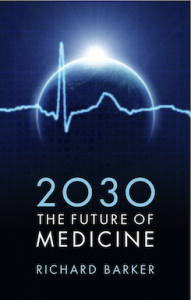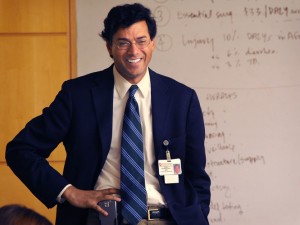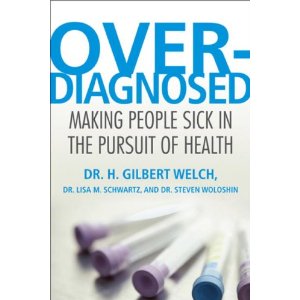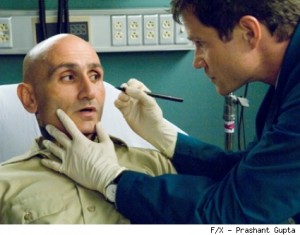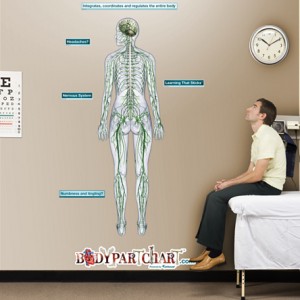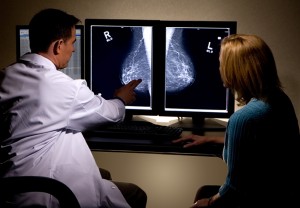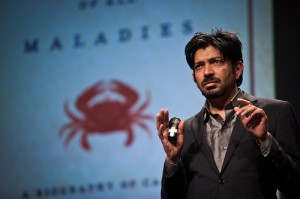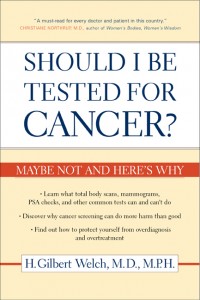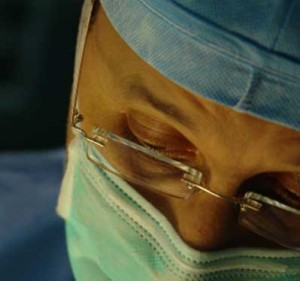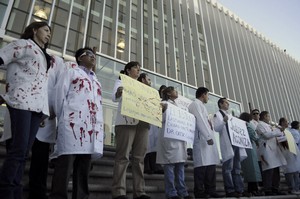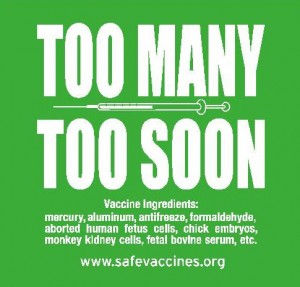 Dogs can be trained to sniff out bowel cancer, Japanese researchers say (Guardian)
Dogs can be trained to sniff out bowel cancer, Japanese researchers say (Guardian)
Specially trained Labrador retrievers are nearly as good at identifying cancer as a conventional colonoscopy. Their sense of smell can pick up minute traces of chemicals circulating in the human body.
Florida judge rules against Obama’s health reform (Guardian)
Conservative judge in conservative part of conservative state ruled health care reform unconstitutional. He argued that, because the bill includes the requirement that everyone buy insurance, the whole bill is unconstitutional. “Congress could require that people buy and consume broccoli at regular intervals,” he wrote.
Earlier Hormone Therapy Elevates Breast Cancer Risk, Study Says (NYT)
Study of more than a million women finds that those with the greatest risk of breast cancer from hormones are the ones who take them earliest — before or soon after menopause begins.
Breast Cancer Risk in Relation to the Interval Between Menopause and Starting Hormone Therapy (Journal of the National Cancer Institute) (PDF)
What you don’t learn in the NYT article is that the risk declines after women stop taking hormones, falling within three years to the same rate as those who never took hormones. Read more



